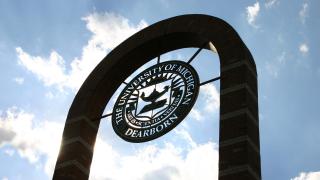The university recently announced it is taking action to strengthen its commitment to prevent sexual misconduct on campus and to make the U-M system a place where members of the university community – students, faculty, staff and visitors – feel safe and supported.
At the July 15 Board of Regents meeting, the University of Michigan introduced the creation of a new office on all three U-M campuses with significant new resources for support, education and prevention of sexual misconduct, as well as sharing new details on a process that will include the better promotion of shared community values across campus culture.
U-M President Mark Schlissel outlined the more holistic approach in meeting remarks and the regents offered their unanimous support for the new approaches and policy revisions. “Today’s announcements are informed by the input of hundreds of people within our community, as well as national best practices,” said U-M President Mark Schlissel. “This includes faculty and staff who have been engaged in these issues for years, students who have shared their experiences, and committed members of our faculty governance groups. I thank everyone who has contributed to this work.”
Chancellor Domenico Grasso said these changes will enhance the work the UM-Dearborn campus started through a Department of Justice (DOJ) grant secured last year. The grant formalized a partnership with local nonprofit First Step to offer a 24/7 helpline for the UM-Dearborn community, and to hire a Violence Prevention and Response Initiatives program manager to develop educational programs and be a confidential support person for survivors.
“I welcome and support all of the changes initiated by President Schlissel and the Board of Regents. We must act on the values that we espouse.” Grasso said. “Taking action will make UM-Dearborn a better and safer place to learn for our students and a more supportive and accountable place of work for faculty and staff.”
Updates include the formation of the new Equity, Civil Rights and Title IX Office (ECRT) on the three U-M campuses, effective immediately. “This new office more accurately reflects our work and also makes it easier for individuals to determine how to address their Title IX concerns,” said UM-Dearborn ECRT Director Pamela Heatlie. “It also highlights that we focus on support and prevention, in addition to investigating allegations of discrimination.”
Heatlie said news specific to UM-Dearborn is the announcement of additional ECRT staff. A newly created ECRT position, which will help investigate reports of sexual misconduct among other duties, will be posted soon with the goal of having someone in place this fall. The Violence Prevention and Response Initiatives program manager, a temporary position funded through the DOJ grant, will become permanent.
“The regental approval of these changes shows tremendous support. They understand it's important to expand upon the work our campus is doing to create an environment where education is an essential part of prevention and survivors are supported,” Heatlie said. “Changes like these give us a greater chance as an institution to help survivors stay engaged and involved with campus.”
For sustained change, culture needs to shift. Recognizing this, a U-M working group was announced charged with establishing new community expectations and shared values around sexual harassment intervention and prevention policies. It’s led by U-M School of Nursing Dean Patricia Hurn and Sonya Jacobs, U-M chief organizational learning officer and Michigan Medicine senior director for faculty and leadership development.
The culture change process will be broken up into five phases over the next 18 months and aims to recognize the cultures and climates that exist within the university. The working group will engage the U-M community through several campus surveys over the fall and winter terms to collect culture and climate feedback, which will help them develop shared values for all three campuses and Michigan Medicine.
Although these efforts are for the university’s present and future, much of it is influenced by sexual misconduct in the past and looks to prevent reoccurance. The university will implement policy changes pertaining to supervisor-employee relationships and to misconduct by emeriti faculty, reflecting the university’s work with the consulting firm of Guidepost Solutions in response to the recommendations made by the WilmerHale law firm in its report on the sexual misconduct of former U-M Provost Martin Philbert.
The University of Michigan has put in place a first-of-its-kind policy, Standard Practice Guide 201.97, prohibiting a supervisor from initiating or attempting to initiate an intimate relationship with anyone they supervise. A supervisor who violates the policy could face dismissal. “While the expectations spelled out in this policy are not new to our community, we believe they are framed in a manner that clearly reinforces our values as a community,” U-M Provost Susan M. Collins said. People with questions about this policy should contact their human resources representative.
The policy on emeritus and emerita status for retired faculty members has been updated to include a process to revoke that status for misconduct or other compelling circumstances. The policy changes, which are outlined in the Standard Practice Guide 201.80, apply to all faculty members from the three U-M campuses who have been granted the emeritus title by the U-M Board of Regents.
In addition to this change, the university developed a procedures section explaining the process for the revocation status. The final recommendation to revoke emeritus status rests with the U-M president, and the final decision whether to revoke the status rests with the Board of Regents. The affected faculty member will have an opportunity to provide written input prior to the president’s recommendation.
Faculty or emeriti with questions regarding this policy can reach out to [email protected] or to [email protected].
Schlissel said U-M’s leaders at the three campuses and at Michigan Medicine are committed to a supportive and accountable university system and will provide frequent updates as new work is completed and measures are reported.
“The journey to a better Michigan will be ongoing as we strive to be a place where all in our community feel the respect, safety and support they deserve, where everyone can pursue their dreams and ambitions, and where we live up to the highest standards of excellence as a leading public university.”
You can reach UM-Dearborn ECRT staff at [email protected] or by calling 313-436-9194. Additional campus resources for sexual assault survivors can be found here.




